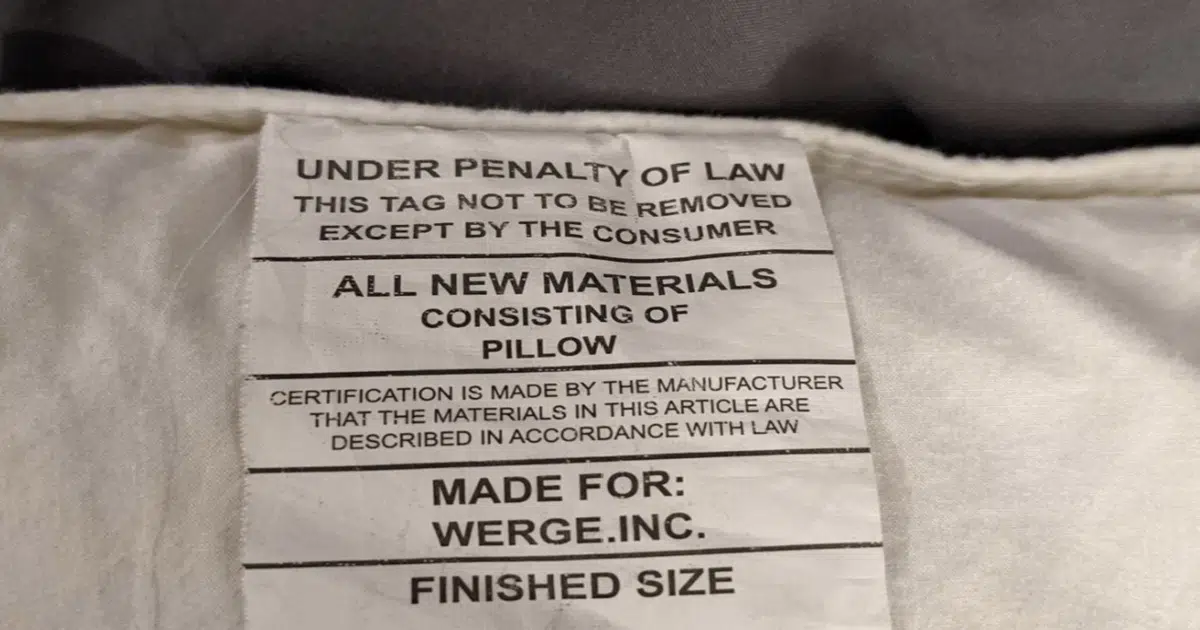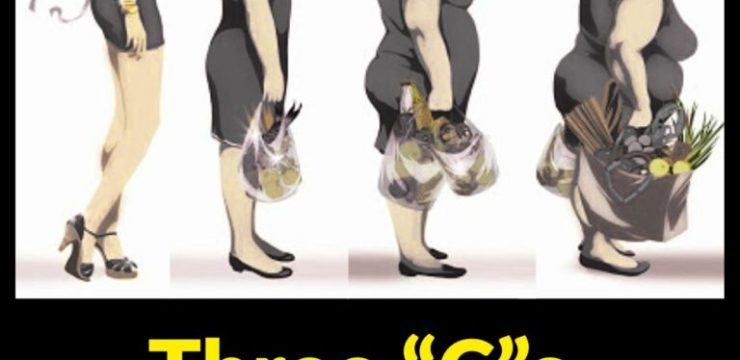We’ve all experienced that frustrating moment—you’re fluffing your pillow, getting comfortable, and suddenly, that scratchy, awkward tag rubs against your face. It happens with pillows, t-shirts, and just about anything with a tag. It’s annoying, and your first instinct is probably to grab a pair of scissors and snip it off.

But then you read the warning on the label: “UNDER PENALTY OF LAW THIS TAG NOT TO BE REMOVED EXCEPT BY THE CONSUMER.” That phrase might make you freeze for a second. I remember the first time my husband saw that, he got so serious and told me, “Don’t touch it until we figure out what that means.” It was both hilarious and oddly concerning. But as it turns out, the situation isn’t as dramatic as it sounds, and the phrase is more about protection than punishment. That tag flapping from your pillow or mattress is officially called a law label. It’s not there just to annoy you—it has a purpose. Back in the day, some manufacturers used shady, low-quality materials in bedding and furniture—things like horsehair or recycled trash. To protect consumers, regulations were put in place requiring companies to disclose what their products were filled with.
These tags help ensure you know exactly what you’re buying and prevent companies from cutting corners. So while the warning may sound scary, it’s not actually meant for you. It’s directed at the retailers and manufacturers. They’re required by law to leave that tag intact until the product reaches the buyer. That way, customers can see what’s inside before purchasing. If the tag is removed by the store or the manufacturer, they could face penalties. But once you buy the pillow and it’s in your home, you can do whatever you want with it. That includes cutting off the tag, guilt-free. I have a friend who refuses to cut any tags off her pillows, and whenever I sleep over, it drives me nuts. But I get it—those tags do contain useful information.
So while you’re allowed to remove it, there might be good reasons not to. Some stores require the tag for returns or warranty claims, and if you toss it too quickly, you might run into problems. Occasionally, important care instructions are printed right on the law label. I’ve definitely ruined pillows before because I didn’t realize they had specific washing requirements listed only on that tag. And if you ever decide to resell or donate your pillow or mattress, having the original tag still attached helps prove it’s clean and safe. It makes the item more credible to second-hand buyers or charities.
That said, if it’s bothering you and you don’t foresee needing the information, feel free to cut it off. It’s not illegal for consumers to remove the tag from their own property. The dramatic wording—“under penalty of law”—is just leftover language from old regulations. The phrase has stuck around since the early 20th century, and although the part saying “EXCEPT BY THE CONSUMER” was added to clarify things, the warning still sounds way more intense than necessary. There are a few exceptions where you should leave the tag on. Items meant for babies, like crib mattresses, car seats, or baby pillows, often have extra safety labels required by law. Removing those might affect safety guidelines or void certain warranties. Similarly, if you plan to donate a mattress to a shelter or sell it, the tag helps confirm that it hasn’t been used improperly. Again, it’s not illegal for you to remove it, but it could complicate things later. So, can you cut your pillow tag off now? Absolutely. If that tag is bothering you and you don’t need it for returns, resale, or warranty reasons, go ahead and snip away. You’re the consumer—it’s your product, and the warning doesn’t apply to you. You can cut it, toss it, burn it, or even hang it on your fridge if you’re into quirky home decor. Just double-check that there isn’t anything important written on it first. At the end of the day, the law label exists to inform and protect you before you buy—not to scare or penalize you afterward. So if that tag is keeping you up at night or just irritating your skin, you’ve got full legal permission to fight back with scissors in hand and peace of mind.





